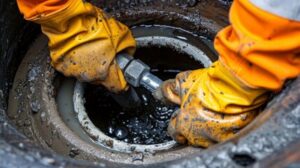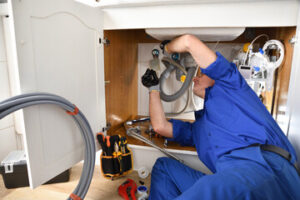Car accidents can have a devastating impact on your life, from medical expenses and property damage to loss of income and emotional distress. The best way to ensure full compensation for these damages is to hire a qualified Car Accident Lawyer.
Duluth Car Accident Lawyer will help you navigate complicated legal and medical issues, including a no-fault insurance system and long-term care costs. They can also help you secure valuable eyewitness testimony that strengthens your case.

Car Accident Lawyers help victims obtain fair compensation for their losses. They handle all communication with insurance companies and protect victims’ rights. This includes negotiating claims, countering lowball offers, and ensuring that insurance companies don’t take advantage of victims. They also have extensive knowledge of New York’s law and insurance coverage nuances.
They can also help victims secure medical records and other documentation to bolster their case. These documents can establish that the injuries are connected to the crash, which is important for determining fault. This information can also be used to calculate damages, including lost wages and future costs.
It is also important for victims to seek immediate medical attention after a car accident, even if their injuries seem minor at first. Doing so can reduce the risk of complications or other illnesses in the future, and it can also help establish causation in a lawsuit. Car Accident Lawyers can also provide guidance on the best course of action for victims after a crash, including whether to give an oral or written statement to the other driver’s insurance company.
A good Car Accident Lawyer will work on a contingency fee basis, meaning they only get paid when they win their client’s case. This arrangement aligns their interests with the victim’s, and it can make a huge difference in the outcome of the case. They may also have a network of experts, such as medical professionals and accident reconstruction specialists, to support their case. This can be an invaluable resource to victims, as they can rely on their expertise to get them the best possible settlement. They can also offer peace of mind, allowing them to focus on their recovery and minimize stress during an already difficult time.
Expertise
Car accident lawyers have years of schooling, training, and hands-on experience with car accidents. Their knowledge can help you get the full financial recovery you deserve. It is important to find an attorney who will take the time to carefully review the facts and evidence in your case. You should also ask about their experience, success rate, and the number of cases they handle at a time.
An attorney can help you navigate the complexities of New York’s car accident laws. They can also help you deal with insurance companies and ensure that you receive fair compensation for your medical bills, lost income, pain, and suffering. They can even file a lawsuit on your behalf if they are not able to reach a fair settlement with the negligent party’s insurer.
A Car Accident Lawyer will also have a network of experts, including accident reconstruction professionals and medical experts, who can help support your claim. They may also be able to access other resources, like eyewitness testimony or photos from the scene of the crash, that can strengthen your case. They will also work to create a timeline of events leading up to the accident and help you determine who was at fault.
In addition, a Car Accident Lawyer will make sure that you meet the required deadlines for filing a claim in New York. This is particularly important if you have suffered severe injuries or if there was a fatality in the crash. They can also provide support during this difficult time by handling the legal complexities and giving you peace of mind. They can also ensure that you are compensated for your medical expenses, lost wages, and future costs.
Experience
Car accidents can happen at any time, and they often cause severe injuries to the victims. In addition, they can result in significant property damage and even death in some cases. This is why it is essential to seek legal representation as soon as possible after a car accident. An experienced New York car accident lawyer will help you get a fair settlement for your losses.
They will also assist you in calculating your total loss, including medical expenses, lost wages, and pain and suffering. This can be difficult, as many factors may go unaccounted for, especially if the injury is chronic or permanent. A lawyer for car accident will ensure that all of your damages are considered, and will not accept a settlement that does not fully compensate you for your losses.
In addition, a car accident lawyer can help you understand the insurance laws in your state. This includes understanding the no-fault system and the rules that govern it. For instance, a lawyer can explain that the no-fault system limits your ability to sue the at-fault driver for more than just your medical bills and lost wages. You can only sue the driver if your injuries meet certain thresholds, such as significant disfigurement, bone fractures, or permanent limitation of a bodily function.
A New York City car accident attorney can help you recover compensation for your physical, emotional, and financial losses after a collision. They will review your case and gather records, negotiate with insurance companies, and represent you in court. In some cases, they will also hire experts to support your claim. Some lawyers also offer a free initial consultation to help you determine whether they are the right fit for your case. Most car accident attorneys work on a contingency-fee basis, which means they will not charge you unless they win your case.
Knowledge of the Law
A car accident lawyer will help you understand your rights and ensure that you are compensated for all of your losses, including medical expenses, lost wages, vehicle damage, and pain and suffering. This is especially important if you are not at fault for the crash.
Many lawyers specialize in specific types of accidents, such as head-on collisions, intersection or T-bone crashes, and pedestrian knockdowns. They are well-versed in all of the state and local laws that apply to these cases and will ensure that your claim is filed correctly.
They will also work to build a strong case for you in court, presenting evidence that proves the full extent of your losses and ensuring that you receive fair compensation. They will also assess your damages and calculate future costs to determine how much to ask for in a settlement. They can also connect you with expert witnesses such as medical professionals and accident reconstructionists.
Car accident attorneys can also help you with a variety of other legal issues, such as negotiating with insurance companies and filing claims. In fact, most car accident claims are resolved through negotiated settlements rather than being litigated in court. Lawyers can also provide you with invaluable advice about your case, such as what to do if the at-fault party refuses to negotiate with you.
In addition, most car accident lawyers work on a contingency-fee basis, which means that they do not get paid unless they win your case. This ensures that they have a strong financial incentive to win your case as quickly and thoroughly as possible. They will also be able to explain the law in a way that is easy for you to understand and empathize with your emotional and physical challenges.
Cost
When it comes to hiring a car accident lawyer, most victims wonder: “How much will this cost?” Fortunately, the answer is typically not much. Many car accident lawyers work on contingency, which means they will only receive a payment if they successfully recover compensation for the client. This can be in the form of a negotiated settlement with the at-fault party’s insurance company or a judgment award from a jury.
In addition, most reputable car accident attorneys will not charge any money upfront for their services. They will use a method known as a contingency fee, where the attorney’s payment is deducted from the total amount of the settlement. In New York, this percentage is usually about 33 1/3 % of the total recovery.
To determine how much you should be awarded, there are several factors to consider. These include medical expenses, lost wages, property damage, and pain and suffering. The amount of these damages can vary considerably depending on the severity and impact of your injuries. A personal injury calculator can help you estimate these costs based on your specific situation.
Insurance companies are typically motivated to pay as little as possible, so having an experienced lawyer on your side is essential. In fact, according to a Martindale-Nolo survey, people who hire an attorney for their car accident cases typically receive significantly more compensation than those who do not.
Some attorneys will also charge an hourly rate for their services. These fees will typically be agreed upon in advance and may vary depending on the attorney’s experience and reputation. These fees can be helpful if you need assistance with a single issue such as reviewing a settlement offer from the at-fault party’s insurer.

